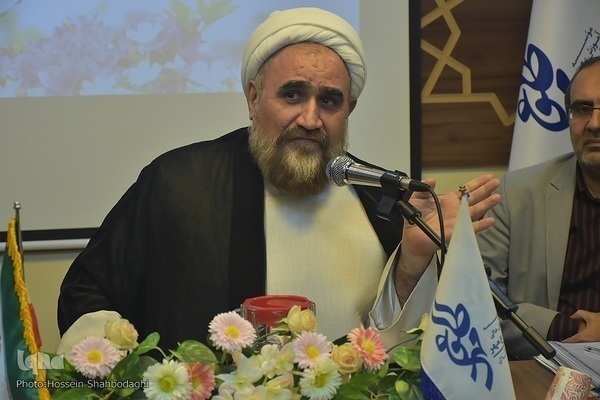Prophet Muhammad’s Peace Treaty at Hudaybiyyah Seen as Strategic Turning Point for Early Islam

Hojat-ol-Islam Mohsen Mohajernia, a university professor and seminary lecturer and head of the Tolou-e-Mehr Center for Islamic Revolution Studies, described the Treaty of Hudaybiyyah as a masterstroke of political strategy by Prophet Muhammad (PBUH) during a period of heightened tensions.
“The Muslim community had just emerged victorious from the Battle of the Trench, which had posed the gravest existential threat by uniting all enemies of Islam in an attempt to annihilate the Muslim government,” Mohajernia said. “Amid this fragile environment, the Prophet (PBUH), inspired by a true dream, set out to perform the Umrah pilgrimage with around 1,400 companions, unarmed and solely intending to worship.”
When the Quraysh tribe blocked the Muslims’ entry into Mecca, forcing them to camp in Hudaybiyyah, a serious crisis unfolded, he noted. “Despite dissatisfaction among some companions who were ready for conflict, the Prophet (PBUH) managed the crisis with remarkable wisdom and turned a potential clash into a historic opportunity by agreeing to a 10-year peace treaty.”
Read More:
The treaty’s initial terms sparked discontent among some Muslims, as they were perceived to be one-sided. However, Mohajernia explained that “the Prophet (PBUH) transformed the situation by securing a renewed pledge of allegiance at Hudaybiyyah known as the Bay‘at al-Ridwan, and on the way back to Medina, the Quranic chapter of Al-Fath (‘Victory’) was revealed, where God declared: ‘Indeed, We have given you a clear conquest’ (Quran 48:1), affirming the treaty as a divine triumph.”
According to Mohajernia, the peace accord yielded multiple strategic benefits. “First, it established the Muslim state’s legitimacy for the first time by compelling the Quraysh to recognize Medina as an equal political entity, thereby shifting the balance of power.”
The second major outcome, he said, was the creation of security and space for foreign policy expansion. “The end of attritional warfare allowed the Islamic government to launch its first international diplomatic outreach, sending letters inviting rulers of empires like Persia, Byzantium, and Egypt to embrace Islam.”
Third, the treaty reshaped Islam’s global image. “Muslims were no longer seen merely as warriors but as advocates of peace and rational negotiation,” he said. “This bolstered the faith’s cultural and ideological appeal while psychologically weakening its opponents.”
Read More:
Mohajernia identified a fourth major outcome in the exponential growth of Islam’s followers. “Historians and commentators agree that more people converted to Islam in the two years following Hudaybiyyah than during the entire period since the Prophet’s mission began.”
The fifth benefit, he added, was internal transformation. “The treaty taught Muslims that victory could also come through diplomacy—not just the sword—highlighting the power of negotiation.”
He also emphasized the sixth consequence: the groundwork it laid for the conquest of Khaybar. “The peace accord enabled Muslims to neutralize the remaining rebellious Jewish factions, and Imam Ali’s (AS) legendary role in capturing Khaybar’s fortress symbolized Muslim resilience against entrenched opposition.”
Finally, Mohajernia described Hudaybiyyah as the gateway to the peaceful conquest of Mecca. “This treaty proved that the Prophet (PBUH) was not seeking war or the destruction of sacred Islamic sites. His strategy was one of long-term, calculated progress, and Hudaybiyyah became the most practical and effective policy for achieving that vision.”
“Hudaybiyyah remains a timeless model for honorable and strategic diplomacy in Islamic history,” he added.
4293586



